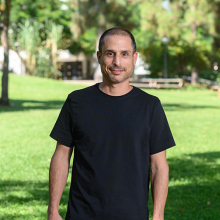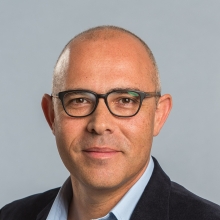Breakthrough leukemia therapy
Briefs

A therapy devised by Weizmann Institute immunologist Prof. Zelig Eshhar for the treatment of a specific kind of advanced blood cancer has shown tremendous results in an early-stage clinical trial led by researchers at the University of Pennsylvania’s Abramson Cancer Center and Perelman School of Medicine.
In the trial, cancers in 27 out of 29 patients went into remission or disappeared altogether. All of the patients in the study were considered “end-stage”—people with advanced cancers who have exhausted all other treatment options.
The results were published in the journal Science Translational Medicine in February. The trial was carried out at the Fred Hutchinson Cancer Research Center in Seattle, Washington.
The therapy involves extracting a patient’s own T-cells from his or her body and genetically modifying them in such a way that they can home in on the tumors and leave the healthy tissue alone. The process, so-called “adoptive cell transfer”, involves engineering the extracted cells with new receptors known as chimeric antigen receptors, or CARs, that are designed to recognize proteins specifically found on tumors. The modified cells are multiplied outside the body and then re-injected into the patient. These T-cells successfully targeted and destroyed the tumor cells in a specific kind of blood cancer called acute lymphoblastic leukemia.
The University of Pennsylvania study was headed by Dr. Stanley Riddell, Dr. David Maloney, and Dr. Cameron Turtle. The therapy was developed by Kite Pharma Inc., in Santa Monica, California.
“I felt a great sense of satisfaction upon hearing the news,” says Prof. Eshhar who pioneered the CAR T-cell approach. “The next task of my lab and others working on this is to expand it to other types of cancer.”
Prof. Eshhar was awarded the Israel Prize in 2015 and the prestigious Massry Prize in 2014 for his research.
He began working on the concept for the therapy in the 1980s. He hypothesized that the immune system, with its robust T-cell population that plays a central role in the system, holds the key to beating back cancer. “We knew that the T-cells have the ability to destroy tissue. The question was how to convince them to attack cancerous tissue, which they do not normally recognize as foreign or harmful,” he says.
Prof. Zelig Eshhar is funded by Comisaroff Family Trust, Leona M. and Harry B. Helmsley Charitable Trust.








